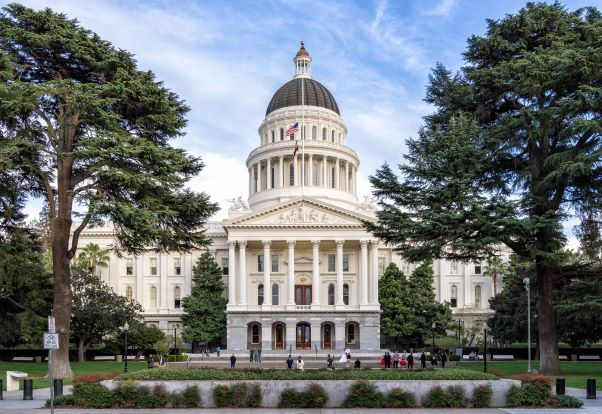UPDATE: On Friday, April 3, Senate President pro Tem Toni G. Atkins (D-San Diego) and Assembly Speaker Anthony Rendon (D-Lakewood) announced in a media advisory that they will call the Senate and Assembly back to the Capitol on May 4. The formal announcement of May 4 as the return date followed a statement from Sen. Atkins to Voice of San Diego earlier in the day proclaiming that the recess would be extended.
Here’s what this will mean for the budget, for new bills and for the remainder of the legislative year:
2020–21 state budget process:
By law, the Governor must release the May budget revision on or before May 15. Typically, budget subcommittees in both the Senate and Assembly meet during March and April to evaluate each house’s budget priorities as the May Revision takes shape. With May 4 as the targeted return date, those committees will face a very short window to formally meet prior to the release of the May Revision.
Following the May Revision, the annual Budget Conference Committee —a joint committee of members of the Senate and Assembly — meets in late May and early June to cull recommendations on individual budget items from both houses and to evaluate new proposals from the Governor, if any. The Conference Committee then will send an agreed-upon budget back to the floor of both houses for a vote. The two houses have a June 15 deadline to pass the budget and send it to the Governor, who then has until July 1 to sign it. These deadlines are set by the California Constitution and are not waivable.
A return date of May 4 would preserve the Conference Committee process and allow both houses an opportunity to vote on the budget. Should the circumstances of the COVID-19 pandemic cause the recess to again be extended beyond May 4, legally viable alternatives are being explored, but it is currently unclear if the Legislature has an allowable option to hold committee or floor votes online or by any avenues other than in-person at the Capitol.
What a ‘workload budget’ means for 2020–21:
On March 24, the California Department of Finance issued a letter regarding the 2020–21 state budget leading up the May Revision, stating that the DOF will now re-evaluate all budget changes within the context of a workload budget. A “workload budget” indicates that the revised budget will focus primarily, if not exclusively, on the preservation of existing programs and is unlikely to add any new programmatic spending as concerns about a major economic downturn loom large.
This will likely affect January budget proposals related to teacher preparation and recruitment, special education and opportunity grants and could even reduce what is available to the Local Control Funding Formula and other statutory cost-of-living adjustments.
Under a workload budget, the Proposition 98 guarantee, while susceptible to fluctuations in revenue and enrollment, still cannot be arbitrarily reduced, but any new revenue projections that are lower than those included in the Governor’s January Budget will potentially lower the Proposition 98 guarantee in the coming budget year.
As reported by the Sacramento Bee, Gov. Newsom in his April 2 press conference stated that, “the January budget is no longer operable. The world has radically changed since the January budget was proposed, so everything is on the table” and that “we should be prepared for substantial adjustments.”
2020 legislative process:
March and April are typically the time when policy committees (such as the Senate and Assembly Education Committees) meet to hear new bills introduced in their own houses. Given the extension of the Legislature’s current recess, policy committee deadlines will need to be addressed when the legislature returns.
With the legislative calendar being squeezed by the COVID-19 pandemic and with the declaration of a workload budget from the DOF, it is possible that policy committee chairs will opt to hear only bills that deal primarily with mitigation of the COVID-19 outbreak or that make non-fiscal adjustments to existing programs, and will likely decline to hear any proposals for new programs or new spending.
Similarly, with the knowledge that there will likely be no money available for new programs, fiscal committee chairs are likely to limit their hearings primarily to COVID-19 related measures introduced in their own houses. Fiscal committees face a May 15 deadline to meet and pass bills to the floor of their house. The deadline for the floors of each house to hear and vote on bills introduced in their house and pass them to the other house is May 29.
By law, the two-year 2019–20 legislative session must end before midnight on August 31. The Legislature can be called into special sessions, pursuant to statutory rules, but the current session cannot be extended beyond August 31.
What this means for K-12 bills and other legislation:
CSBA’s Legislative Committee continues its 2020 work to review new legislation and adopt official positions. The committee has met twice in 2020 (in person in February and remotely in March) and has taken positions on more than 40 new measures.
New 2020 CSBA Positions: Adopted Feb. 21 | Adopted March 20
View all 2019–20 bills with CSBA positions
It now appears possible that many of the bills the Committee has adopted positions on may not move forward in 2020, due to the recess and the overall budget situation. Those that do not advance will likely be shelved for the year but can be reintroduced as new bills when the new 2021–22 session begins in January.
The Legislative Committee will meet remotely again in April to continue reviewing bills introduced in 2020 (all new bills were introduced in advance of a February 21 deadline, prior to the onset of the COVID-19 pandemic), ensuring that CSBA will maintain formal positions on key K-12 bills which may potentially move forward when the Legislature reconvenes.
Please continue to follow CSBA’s dedicated COVID-19 page for news and updates.




